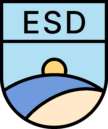SUBJECTS

FRENCH/Spanish- PRIMARY LEVEL OBJECTIVES
- Clearly present explanations, information, or a point of view in order to express agreement or disagreement, to learn, and to debate ideas.
- Read fluently, both out loud and silently.
- Develop reading abilities and an understanding of how the French and Spanish languages work, and improve speed and efficacy with the language
- Develop autonomy when reading varied, age-level adapted texts, expand range of knowledge, increase the amount of references and models used to write, expand curiosity, and refine thinking.
- Practice observations, begin to better understand how language works by studying its components (i.e. grammar, spelling, vocabulary).
- Work on observing the elements that make up the French and Spanish languages on a daily basis (including spelling, vocabulary, grammatical analysis, sintax analysis) .
- Develop an understanding of general and artistic culture, with the goal of developing imagination, enriching understanding of the world, and actively participating in self-growth.
- Finally, and critically, grow their curiosity, intelligence, and love of reading.


MATHs
Our certified teachers use their unique strategies, personalized and adapted to the student, to accompany students as they develop their abilities and work to achieve the following learning objectives:
1. ARITHMETIC:
- Ability to understand and write numbers
- Understanding of calculations with numbers
2. GEOMETRY:
- Area
- Solids
- Figures in a plane
- Number lines
3. MEASUREMENTS:
- Longitudes
- Surface area
- Volume
- Angles
- Capacity
- Weights
- Durations
- Temperature
4. STATISTICS
5. PROBABILITIES





Discovery of the world
MORAL AND CIVIC EDUCATION:
The program focuses on elements of moral and civic culture, taking into account four key dimensions:
- The sensitivity to acquire a moral conscience, by expressing and identifying emotions and feelings.
- The right to develop an understanding of the rules of coexistence.
- The good judgement that allows us to understand and discuss the moral choices that we encounter throughout our lives.
- The commitment that allows us to apply this education, insisting on autonomy, cooperation, and responsibility to others.
LEARN TO QUESTION THE WORLD
With the help of our teachers, our students will learn to:
- Question the world of living things, matter, and objects.
- Question space and time.
- Explore global organizations
HISTORY TOPICS
Students will explore:
- What existed before?
- The era of the Kings.
- The era of the Revolution and the Empire.
- The era of Republic.
- The industrial age.
- The World Wars
- The European Union
GEOGRAPHY TOPICS
Students will explore:
- Discover: Regions and landscapes
- Life, work, culture, and entertainment.
- Consumer habits.
- Getting around.
- Communicating with the world, thanks to the Internet.
- How to better coexist.




english as a foreign language
The English teachers will:
- Develop the behaviors and attitudes essential for learning modern languages (curiosity, listening, attention, memorization, self-confidence), and facilitate mastery of the language.
- Educate the children’s ear to the melodic and accentual realities of a new language.
- Help the students to acquire knowledge and skills, primarily orally.
Organization: level groups will be formed according to the learners’ levels (beginners and advanced). Beginners will receive English lessons while the more advanced will do other types of activities, such as art, in English.



PHYSICAL EDUCATION AND SPORT
THE THREE MAIN OBJECTIVES OF PHYSICAL AND SPORTS EDUCATION:
1. Develop the capacities and resources necessary for motor skills.
- To enrich the basic motor repertoire: locomotions, displacements, balances, manipulations, projections, receptions.
- Build, diversify, chain, combine actions.
- Development of projects through the practice of sports activities which gives them meaning.
2. Acquire skills and knowledge to know their body better, respect it and keep it in good health.
- Acquire specific self-knowledge in sports.
- Take measured risks.
- Know your body better, its possibilities, its reactions to exercise.
- Practical knowledge on how to achieve, sensations, emotions.
3. Access the cultural heritage represented by the various reference social activities and practices.
- Acquire specific knowledge and skills on the different activities: instruments used, rules respected, codes implemented, benchmarks in the environment.
- Understand what has been experienced, what to do.
- To experience other sensations.
- Take other benchmarks in the environment.
